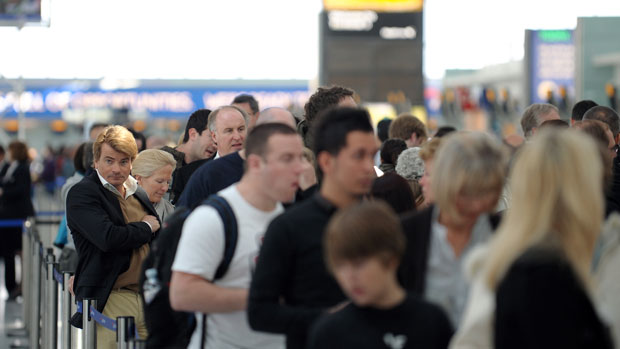What are the UK’s quarantine rules - and why are they so controversial?
Senior Conservatives urging cabinet to ditch plans for mandatory 14-day self-isolation for overseas arrivals

A free daily email with the biggest news stories of the day – and the best features from TheWeek.com
You are now subscribed
Your newsletter sign-up was successful
The government is considering scrapping its planned 14-day quarantine rule for people entering the UK, according to sources.
From Monday 8 June, arrivals to the UK via plane, ferry or train must self-isolate for two weeks, even if they are normally resident in Britain or are British citizens. But a government insider told the BBC that ministers were examining ways around the coronavirus quarantine, amid warnings from MPs and businesses that the restrictions will damage the travel industry.
What are the quarantine rules?
The Week
Escape your echo chamber. Get the facts behind the news, plus analysis from multiple perspectives.

Sign up for The Week's Free Newsletters
From our morning news briefing to a weekly Good News Newsletter, get the best of The Week delivered directly to your inbox.
From our morning news briefing to a weekly Good News Newsletter, get the best of The Week delivered directly to your inbox.
Brussels-based news site EUobserver reported backed in March that nine EU countries had closed their borders entirely, while Germany has had quarantine measures in place since early April.
Now, the UK is set to follow suit, with government rules stating that new arrivals to the UK will “not be allowed to leave the place you’re staying for the first 14 days you’re in the UK except in very limited situations”.
The online advice says the only exceptions are if people arriving from overseas:
- • need urgent medical treatment
- • need support from social services
- • need food and medicine and cannot get them delivered or get a friend or family member to bring them
- • are going to the funeral of a close relative, or for other compassionate reasons
- • or in the event of an emergency such as a fire where the new arrival is staying.
Anyone caught breaking the rules may be fined £1,000 for refusing to self-isolate in England and Wales, and “could face further action”, says the government website.
A free daily email with the biggest news stories of the day – and the best features from TheWeek.com
However, people in some professions are exempt, including lorry drivers, police officers, seasonal farm workers and healthcare professionals, says the BBC.
The rules will also not apply to people coming from the Irish Republic, the Channel Islands and the Isle of Man.
Why are the plans controversial?
Junior housing minister Simon Clarke told BBC Breakfast that the quarantine policy was “a proportionate step” which would reduce the risk of new coronavirus cases being imported into the UK “just at the time that we are getting a grip on it”.
The mandatory quarantine is a “temporary, time-limited measure”, but its introduction is “vital”, he added.
But many other Tory MPs believe the move is not necessary and will further damage the UK travel and hospitality industries, the Financial Times reports.
Graham Brady, chair of the 1922 Committee of Conservative backbenchers, said: “It would be senseless to introduce a blanket quarantine, including travel from countries with very low - or no - Covid-19 infection. It would be wise to announce exemptions for such countries at the same time the quarantine is launched.”
Former cabinet minister David Davis said the quarantine plan sent a “terrible signal to the rest of the world” that the UK was still stuck under lockdown measures as other countries ease social distancing restrictions.
In response to such concerns, UK government officials are investigating whether transport corridors, or “air bridges”, could be allowed between the UK and other countries with similar or lower infection rates.
The plan was floated last month by senior Tory MP Huw Merriman and has won the backing of Transport Secretary Grant Shapps.